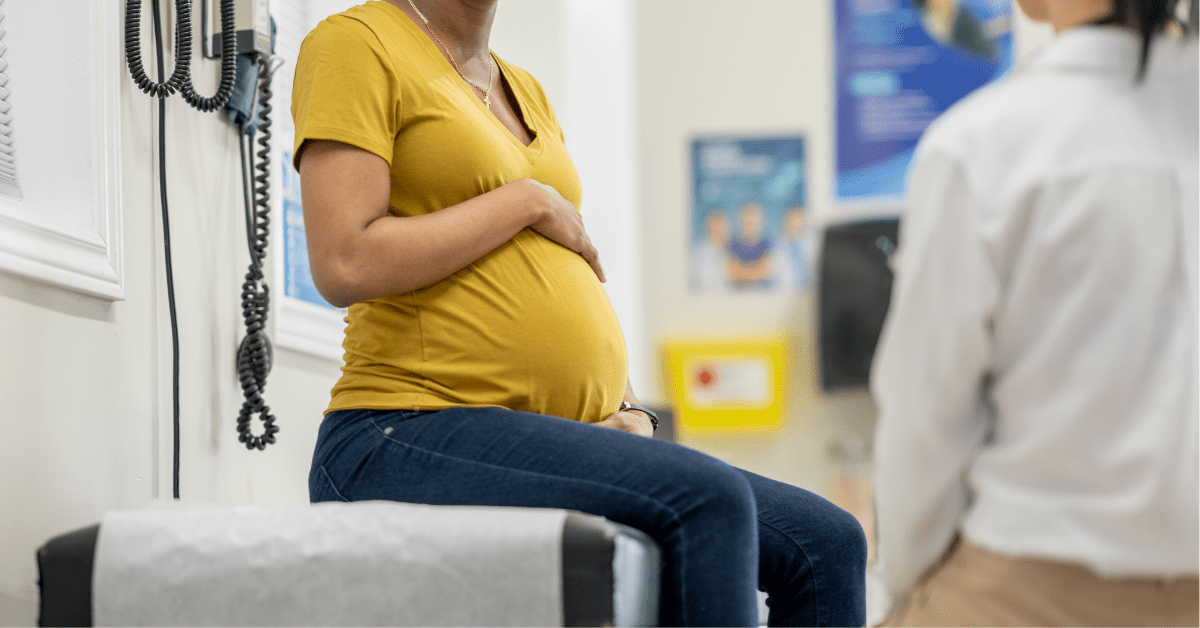
- Mississippi lawmakers have approved presumptive eligibility for pregnant women who are likely to receive Medicaid coverage but who have not yet been approved.
In an effort to provide care to pregnant women through presumptive eligibility for Medicaid, the Mississippi Legislature has passed HB 539. The move comes one day after the House voted 98-20 to expand Medicaid eligibility.
Presumptive eligibility refers to the process of granting Medicaid services to those who may qualify before their eligibility is verified by the program.
State Senator Nicole Boyd (R), who presented the bill on the Senate floor Tuesday, made clear that the legislation does not create a new eligibility group to the program or expand coverage. The intent in presumptive eligibility is to allow a pregnant woman to see a doctor, prior to her Medicaid application approval.
“We are not a healthy state,” said Senator Boyd. “Our state’s pre-term birth rate is the highest in the nation and our infant and maternal mortality is also the highest in the country.”
She said leading healthcare experts say the best way to prevent adverse pregnancy outcomes like infant and maternal deaths is to offer adequate prenatal care.
State Representative Missy McGee (R), who authored the bill, said she was very pleased with the Senate passing the legislation. She hopes the measure will help reduce the number of pre-term births in the state.
“This measure will allow women to receive medical care early in their pregnancy, specifically in their first trimester, which is key in helping them have a healthy, full-term baby,” said McGee. “Passage of presumptive eligibility is a big win for both moms and babies in Mississippi.”
Statistics show that two-thirds of pre-term births in Mississippi are to mothers on Medicaid. However, gaining approval for Medicaid coverage for mothers within the eligibility group can take time. Senator Boyd said presumptive eligibility allows them to receive care within a 60-day window prior to that approval.
The bill outlines that a qualified provider could approve a woman who presents as pregnant and shows proof of income for care up to 60 days as she applies for full coverage from the program. Senator Boyd said it typically takes Medicaid 45 days to approve such applications for coverage. These providers would be required to have training and approval from Medicaid to make these determinations.
The fiscal note attached to the change shows that it could cost the state up to $567,000 yearly. When compared to the costs accumulated from a pre-term birth, Senator Boyd said it would promote a cost saving measure for the state as care for just one child in a pre-term birth can cost the state up to $1 million at the University of Mississippi Medical Center (UMMC).
Senator Boyd said the additional cost is expected to be built into the Medicaid budget.
Earlier this year, Dr. Daniel Edney, State Health Officer for the Mississippi State Department of Health, told lawmakers that many pregnant women in Mississippi are not receiving prenatal care until their fifth or sixth month, or second trimester.
His predecessor, Dr. Thomas Dobbs, who now serves as the Dean of the John D. Bower School of Population Health for UMMC, penned an article in collaboration with Dr. Elizabeth Lutz and Rohinton Dossabhoy in which they point out that prenatal care is one of the most critical mechanisms to prevent poor pregnancy outcomes.
“Despite healthcare professionals recommending early and continuous prenatal care throughout one’s pregnancy, a significant portion of Mississippi women – largely, Black, Hispanic, and Native American women – receive delayed, insufficient, or no care, putting them at a great risk of experiencing several adverse pregnancy outcomes,” the article outlines.
State Senator Joey Fillingane (R) questioned what would happen in the event a woman was deemed eligible and later her Medicaid application was denied. Senator Boyd said at this point, there is no process to recoup those costs due to the small amounts they total. She added that the potential for that situation is included in the estimated costs of enacting presumptive eligibility.
Dobbs addressed this issue in his earlier article, saying there are federal matching funds available for services rendered.
According to a recent column on presumptive eligibility written by Jonathan Bain, a Senior Research Fellow at the Foundation for Government Accountability, states cannot recoup Medicaid funds spent on patients deemed presumptively eligible at the time of service but were later removed because they did not qualify.
“That’s like me saying I could pay for the new truck, drive it off the lot, and straight into a month-long demolition derby with it,” Bain wrote. “Then, when the bill came due the following month, I simply walk away and say, ‘no harm, no foul—the taxpayers will cover it!'”
Even still, evidence documented by the Center for Mississippi Health Policy, a review by the University of Mississippi Center for Population Studies, showed that living in states with a presumptive eligibility policy can reduce preterm births for women who are covered by Medicaid.
Lt. Governor Delbert Hosemann was pleased to see the legislation pass the Senate.
“Pro-life is pro-child. Mississippi mothers need access to healthcare the moment they find out they are pregnant, and this legislation will accomplish that. We are thankful for the consistent leadership of Senators Kevin Blackwell and Nicole Boyd on critical women’s healthcare issues in our chamber,” said Lt. Governor Hosemann (R).
In 2023, the Legislature passed 12-month postpartum care for mothers on Medicaid. The law ultimately extended care for women who had recently given birth from 60 days to 12 months. The coverage increase was estimated to cost Medicaid $32 million for Fiscal Year 2024, with only $7.1 million in state share.
The presumptive eligibility legislation now heads to Governor Tate Reeves (R) for consideration. The measure passed the House by a vote of 117-5 and the Senate by a vote of 48-4.











